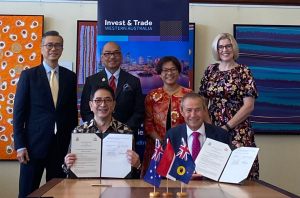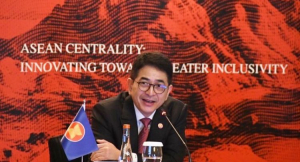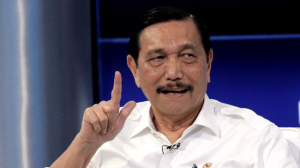Directorate General of Taxes forms High Wealth Individual Task Force to boost tax revenues and combat tax evasion
The Directorate General of Tax (DGT) has formed a High Wealth Individual Task Force (Satgas HWI) to specifically oversee wealthy taxpayers.
The formation of this task force is intended to increase the value of tax revenues, as well as reduce the risk of abuse of authority.
Suryo Utomo, Director General of Tax, said that the establishment of the news task force is a way of continuing efforts to capture revenue from the super-rich in the country.
"Extra efforts need to be encouraged, one of which is increasing supervision through the HWI Task Force," said Fajry Akbar, a researcher from the Center for Indonesia Taxation Analysis.
So far, the structure of tax revenues still depends on the tax revenues of the rich. Akbar explained that residents with income exceeding IDR 500 million per year are only 1.59% of the total number of individual taxpayers, and contribute 64.65% to individual tax revenues.
Through HWI supervision, it is predicted to be able to significantly maintain income tax revenue. Automatic Exchange of Information (AEOI) data in 2018 shows that there are IDR 670 trillion of financial assets abroad that have not been reported, including non-monetary assets, such as property, high-value art, and luxury jewelry.
So far, Akbar explained that some assets have been included in voluntary disclosure, but some have not.
"This shows the risk of HWI taxpayer compliance," he said.
The Directorate General of Tax predicted that there will be 1,119 new taxpayers who will be affected by this new layer of policy; this number represents 0.03% of individual non-employee taxpayers.
Meanwhile, this number can increase because it is only a portion of the number of taxpayers in the HWI category in Indonesia.
"Hopefully, the amount of wealth will be directly proportional to income because the basis for tax revenue is taxable income," he said.
With 1,119 taxpayers contributing 14.28% of the average total individual tax revenue in the last five years, the government will receive an increase in the amount of taxes.
Expert response
Bawono Kristiaji, Research Director and Fiscal Advisor at the Danny Darussalam Tax Center (DDTC), said the steps taken by the government are correct because they paid more attention to tax compliance for the super-rich.
"This can be seen from the formation of special tax units for the HWI group, the imposition of a wealth tax for more inclusive economic growth, to global coordination against offshore tax evasion, which is mostly carried out by the super-rich," he said.
The challenges faced with this policy must be carried out carefully in the midst of the practice of obscuring asset ownership on the international scene.
Meanwhile, a number of people, especially entrepreneurs, questioned the urgency of forming the HWI Task Force, because the validity of the data was doubtful.
Sarman Simanjorang, Deputy Chairperson of the Indonesian Chamber of Commerce and Industry (KADIN) questioned the urgency of forming this special team, especially the government's taxpayer data which ultimately led to the decision to form this Task Force.
He suggested that there should be a comprehensive evaluation of government taxpayer data, and asked to explain who is in the category of super-rich individuals. So that the Task Force will be more focused and on target.
Meanwhile, Ajib Hamdani, Head of the Fiscal and Tax Agency of the Entrepreneurs Association (KAHMI) said the future challenge of this Task Force is compiling a valid and integrated database.
In addition, Arsjad Rasjid, Chairman of KADIN, stated that his institution supports the government's efforts to increase tax revenues. But he also reminded that the tax collected must be redistributed to the people's economy. Such as through incentives for the business sector which was affected by the weakening of the global economy.
Tag
Already have an account? Sign In
-
Start reading
Freemium
-
Monthly Subscription
30% OFF$26.03
$37.19/MonthCancel anytime
This offer is open to all new subscribers!
Subscribe now -
Yearly Subscription
33% OFF$228.13
$340.5/YearCancel anytime
This offer is open to all new subscribers!
Subscribe now






